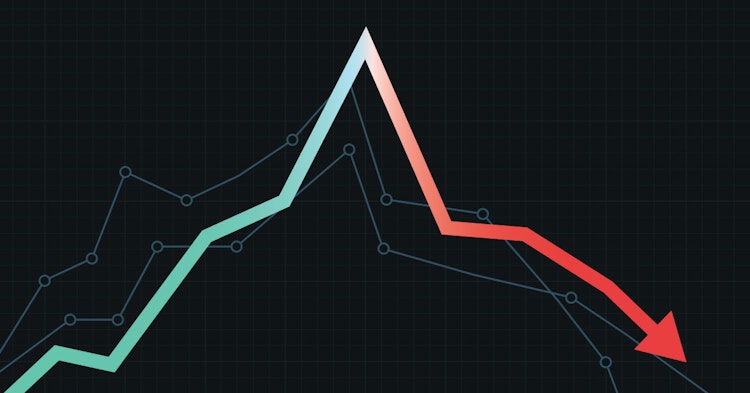Clean Bowled: Why Bad Big Bash Teams Stay Bad
Dec 21, 2021, 2:51AM
We know that winning the BBL takes meticulous preparation and a strong plan, so why can’t every team adopt that mindset?
We’ve become accustomed to the ebbs and flows of team sports in Australia, with strangleholds on the entire competition rarely seen beyond a stretch of a few years, but for sustained disappointment to be had, it’s much more than simply having forgotten to plug in a #winningculture.
Last week, we broke down how a team can put themselves in a position to be the best BBL franchise and among plenty of points, stability and consistency were the most vital descriptors.
The competition’s short history is strangely littered with underwhelming teams who have failed to deliver over a relatively sustained period of time.
Hobart hasn’t reached any great heights, with only 4 finals appearances in 10 seasons, losing in the big dance twice and having 4 bottom-three finishes.
The Melbourne Stars too, have provided such grand expectations on a near yearly basis, yet have turned their 8 finals appearances into just 3 losing Grand Finals.
The BBL|08 success of the Renegades has masked just how bad they’ve been for a long period of time too, with 5 bottom-three finishes including the last two wooden spoons, while the Heat have also only made finals on 3 occasions, winning the league once.
Once a laughing stock of the competition, at least the Thunder have turned their fortunes around with two consecutive finals appearances and are on the right track to competing for their second title in BBL|11.
RELATED: Check out all of Stats Insider's BBL season projections
Clearly, a failure for the Thunder and Stars historically has been the emphasis placed on “star” personnel to guide them to greener pastures.
The early iterations of the Thunder included Chris Gayle and nearly no support.
In the very first version of the BBL, only three players scored over 100 runs, one of which was David Warner’s infamous unbeaten century, and no players finished with more than 10 wickets.
In the second edition of the competition, only three players scored over 100 runs again, and only one player finished with more than 6 wickets.
Truthfully, the Thunder caught lightning in a bottle with the aberrational BBL|05 victory, as it signified the first time they had consistent and stable output across the board.
While Jacques Kallis and Andre Russell were big names and made their contributions, Usman Khawaja, Michael Hussey, Shane Watson, Clint McKay and Chris Green were vital in creating a well-rounded team.
Straight after that victory, Hussey and Kallis retired and the Thunder had 16 players who played multiple games, with no one scoring more than 175 runs or taking 10 wickets over the season. They relied on imports like Russell with cameos from Eoin Morgan, James Vince and Carlos Brathwaite, most of whom were disappointing.
Perhaps it’s difficult to truly label the Stars as underperforming given their strike rate to progress past the home-and-away season is the equal-best, alongside the Scorchers, but to never have won a title has to be seen as some sort of failure.
Whether it be Shane Warne, Lasith Malinga, Kevin Pietersen or Glenn Maxwell, some of the world’s biggest or best players have rotated through the Melbourne Stars at some point, yet never helped take them to the promised land.
A systematic failure of this franchise has generally been the inability to field a well-rounded, consistent XI with clearly identifiable roles and stability.
Even in the current group, there is an incredibly heavy reliance on Marcus Stoinis, Glenn Maxwell, Adam Zampa and however much of Andre Russell they can get access to.
Historically, this is a team that has genuinely carried players that haven’t batted or bowled, which has never helped any side across franchise cricket in the world win a game.
We’ve all heard the adage “the best ability is availability” and at times, the Stars have been blinded by the brightness of international-calibre players, without thinking of the international fixtures, or other, more lucrative competitions.
Understandably, within the wide-ranging subjective view of failure, there are many ways for teams to not reach the ultimate glory and while the Thunder and Stars have had multiple avenues to do so, they are still different to the capped ceiling that we’ve seen at the Hurricanes and BBL|08 aside, the Renegades.
RELATED: BBL|11- Getting To Know The New Overseas Signings
While we discuss the fallibility of over-reliance on international players, it’s still important to pick the right stars to help glue a team together and provide the necessary x-factor when needed.
Hobart specifically, has arguably been the worst at international recruiting and fielding a title-worthy side, with too many passengers in the team.
In the BBL’s infancy, Hobart recruited cult heroes that performed extremely well.
Owais Shah and Naved-ul-Hasan were great pieces to have alongside the established types like Travis Birt, Jono Wells, Jason Krejza and Phil Jaques.
When the Hurricanes got to see more of George Bailey, Ricky Ponting, Cameron Boyce and Ben Laughlin, they couldn’t fill the rest of their team.
International players like Shoaib Malik, Dimi Mascarenhas, Alex Hales, Darren Sammy, Kumar Sangakkara, Stuart Broad, Tymal Mills, Keemo Paul and Will Jacks were complete failures that they masked the brilliance of Jofra Archer, Dawid Malan and local stars D’Arcy Short, Ben McDermott and Matthew Wade.
When we analyse the Renegades, they have always relied on the temperamental Aaron Finch whose brilliance and disastrous form mix often and at his best, was unavailable, while Kane Richardson has built a reputation on holding the team up with one hand.
Historically they’ve relied on old players like Cam White, Tom Cooper, Brad Hodge, Dwayne Bravo, Brad Hogg, Chris Gayle and a bunch of others, which led them to the surprise title that helped cover years of disappointment.
Identity has always been an issue with the Renegades, fighting with their star-studded city rivals.
It led to a lot of short-term international recruitment in the first five years of the BBL which was completely disruptive to the XI and ruined any team chemistry and the confidence of existing members.
In BBL|04 alone, the Renegades got 4 games out of Andre Russell, Ben Stokes, Dwayne Bravo and Shakib Al-Hasan, while only getting a full season out of Callum Ferguson and Matthew Wade, the rest of the squad being thrown in and out as victims of an identity crisis.
Currently, the Renegades are struggling with the idea of developing youth, a tactic not seen before in the BBL but in building trust and loyalty in a young squad, this could certainly bring success in the future.
RELATED: Are The Melbourne Renegades Ready For Redemption?
Obviously, it’s extremely difficult to be crowned champions of any competition and the BBL is certainly a difficult competition to master.
There’s no single reason why teams aren’t able to win, but there is enough of a sample size in existence for teams languishing for longer periods of time, to understand how to transform their squad.
At least to be competitive, putting value on the entire playing XI, picking players largely available for the entire tournament and having star players that can act as reliable glue more than the “be all and end all” are imperative to establishing a consistent and stable squad.
Simple goals can bring great success.
It’s time some teams employed that mentality.
Did you enjoy this article? Join our free mailing list to get the best content delivered straight to your inbox, or join the conversation by leaving a comment below or on the Stats Insider Twitter or Facebook page.




